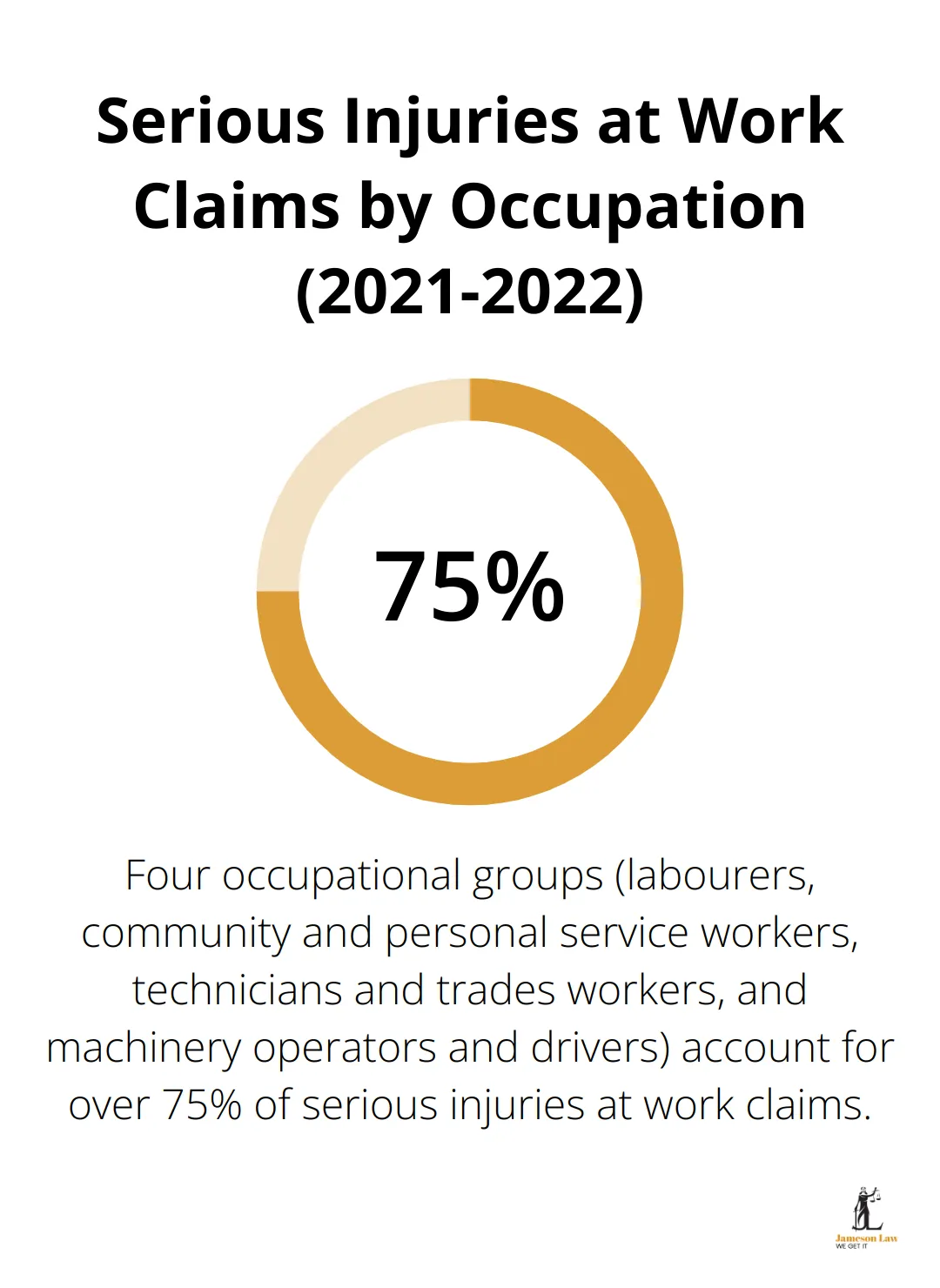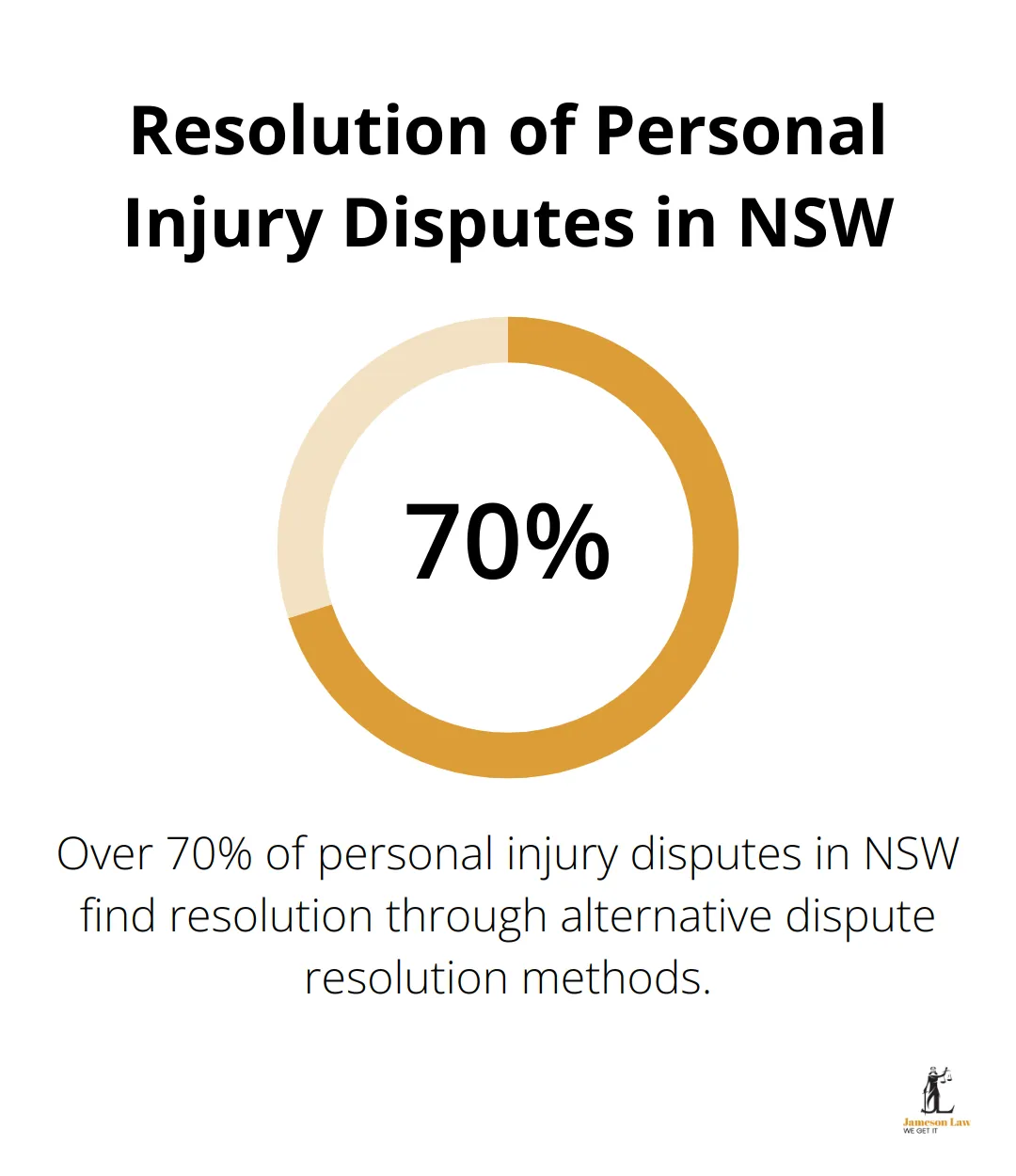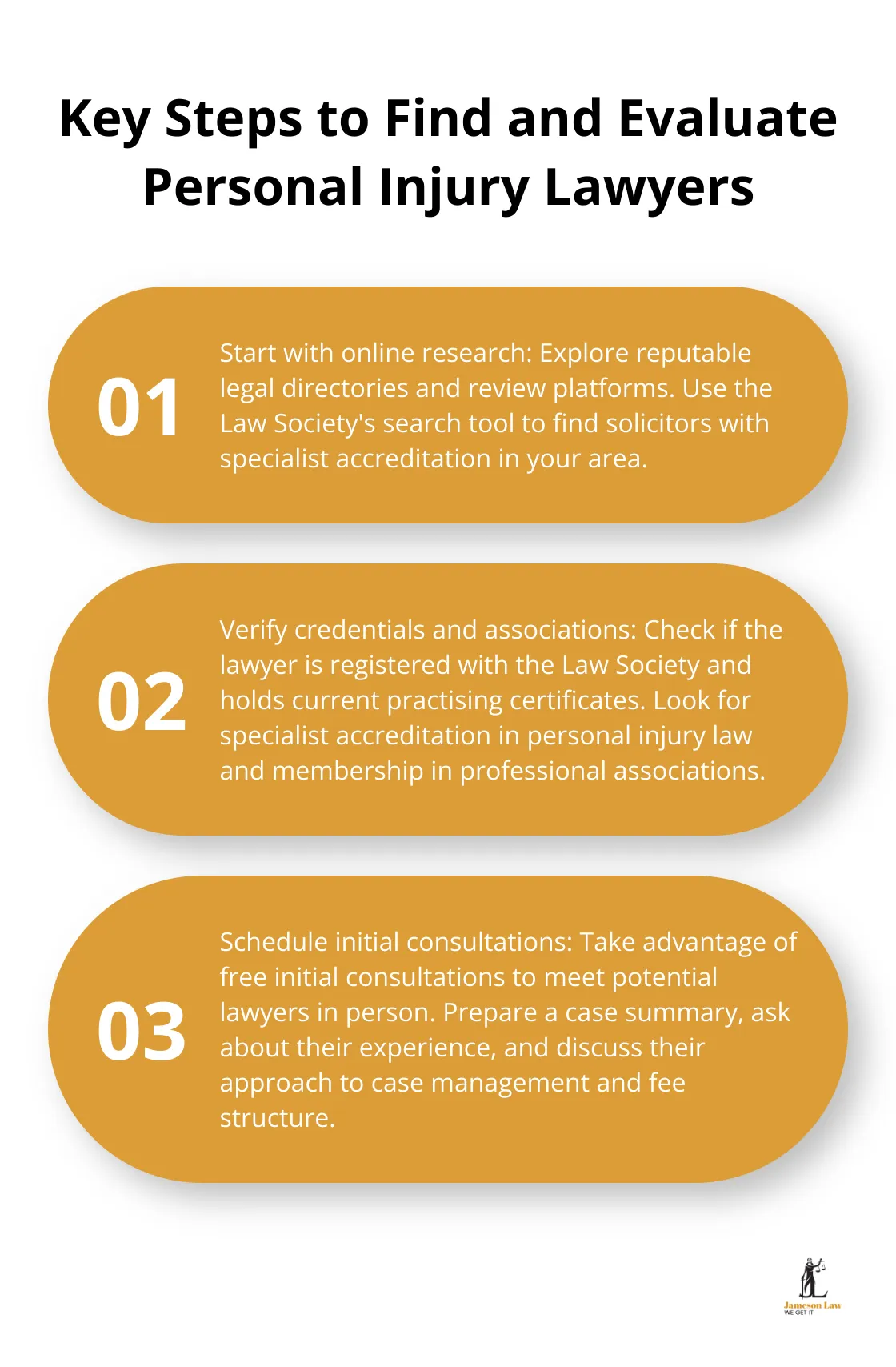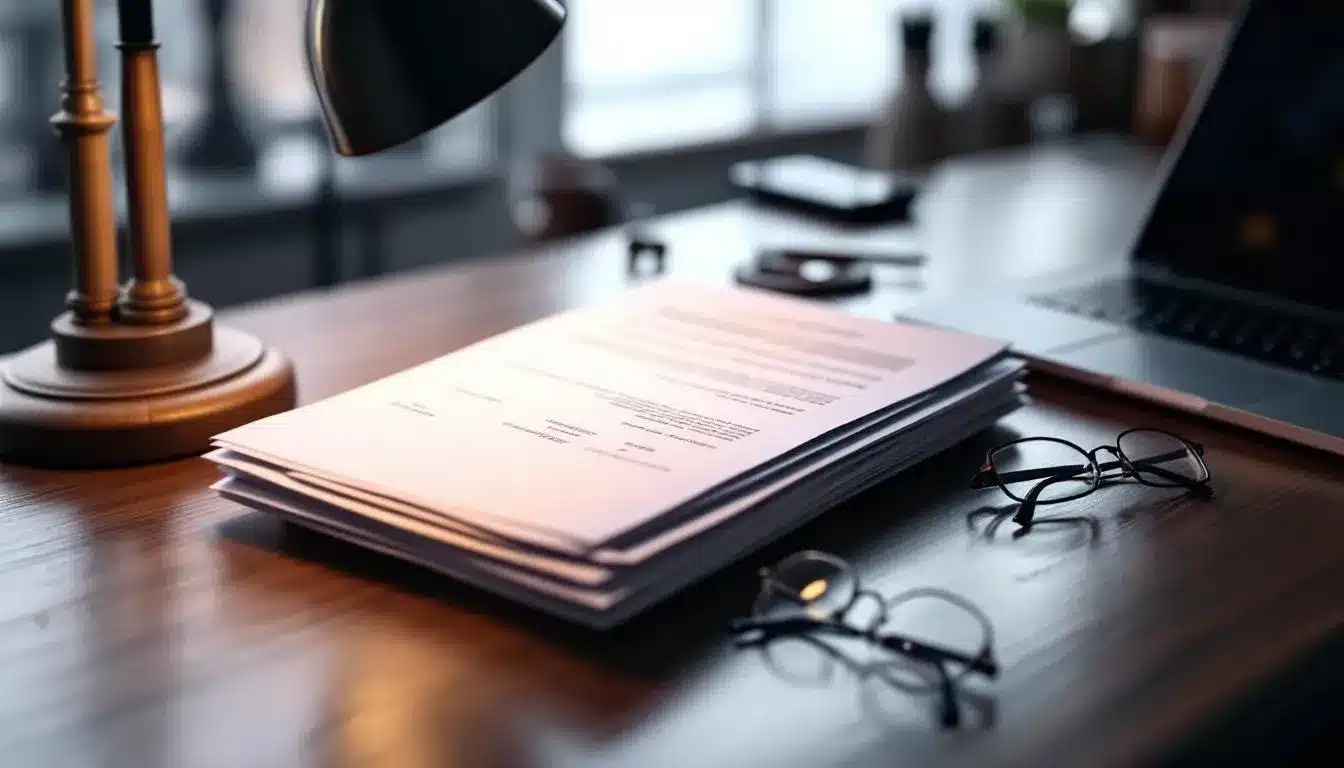Choosing the right personal injury lawyer can make a significant difference in the outcome of your case.
At Jameson Law, we understand the challenges you face when seeking legal representation after an accident or injury.
This guide will help you navigate the process of finding a skilled personal injury lawyer who can effectively advocate for your rights and secure the compensation you deserve.
What Is Personal Injury Law in NSW?
Definition and Scope
Personal injury law in New South Wales (NSW) safeguards individuals who have suffered harm due to another party’s negligence or wrongful actions. This legal framework enables victims to pursue compensation for their injuries, financial losses, and other damages.
Common Personal Injury Cases in NSW
NSW witnesses a diverse range of personal injury cases. Motor vehicle accidents top the list, with Transport for NSW reporting over 30,000 road injuries in 2022. Workplace injuries also feature prominently, with four occupational groups accounting for more than 75% of serious injuries at work claims in 2021-2022: labourers, community and personal service workers, technicians and trades workers, and machinery operators and drivers.

Other frequent types of personal injury cases include:
- Slip and fall accidents
- Medical negligence
- Product liability
- Public liability incidents
Each case type demands specific legal expertise to address the intricacies of NSW law and secure the best possible outcome for the injured party.
The Importance of Lawyer Selection
Your choice of lawyer can dramatically influence the success of your claim. A proficient lawyer will:
- Assess your claim’s value accurately
- Collect and present compelling evidence
- Negotiate effectively with insurance companies
- Navigate complex legal procedures
A recent NSW Supreme Court case illustrates this point. The plaintiff received over $1 million in damages for a workplace injury, largely due to the lawyer’s ability to demonstrate the injury’s long-term impact on the plaintiff’s earning capacity.
Time Limitations and Prompt Action
Time plays a critical role in personal injury cases. In NSW, there is a ‘long-stop’ limitation period of 12 years for personal injuries. This means a personal injury claim cannot be brought more than 12 years after the date of injury. Swift action and expert legal guidance are essential to protect your rights and secure the compensation you deserve.
The next chapter will explore the key qualities to look for when selecting a personal injury lawyer, ensuring you find the right legal representation for your case.
What Makes a Great Personal Injury Lawyer?
Proven Track Record in Personal Injury Law
The selection of a personal injury lawyer can significantly influence the outcome of your case. A lawyer’s track record speaks volumes about their capabilities. You should look for a lawyer who has successfully handled cases similar to yours. For example, if you’ve suffered a workplace injury, seek a lawyer with extensive experience in workers’ compensation claims.
The Law Society of New South Wales requires specialised accreditation in personal injury law. This accreditation demands a minimum of five years of full-time practice experience (with at least three years in personal injury law). Such accreditation ensures that a lawyer has demonstrated expertise in this field.
Negotiation Skills That Deliver Results
A lawyer’s negotiation skills can substantially impact your compensation. In NSW, most personal injury cases reach settlement out of court. The NSW Civil and Administrative Tribunal reports that over 70% of personal injury disputes find resolution through alternative dispute resolution methods.

You should ask potential lawyers about their negotiation strategies and success rates. A skilled negotiator often secures higher settlements without the need for lengthy court battles.
Transparent Fee Structure
Understanding the costs involved in your case is essential. Many personal injury lawyers in NSW offer a No Win No Fee arrangement, which can provide financial peace of mind during a challenging time. However, you must fully understand the terms of this agreement.
The Legal Profession Uniform Law (NSW) mandates that lawyers provide clear, written information about their fees and billing practices. Don’t hesitate to request a detailed explanation of all potential costs, including court fees and expert witness expenses.
Strong Communication Skills
Effective communication forms the backbone of a successful lawyer-client relationship. A great personal injury lawyer should explain complex legal concepts in simple terms, keep you updated on your case progress, and promptly respond to your queries.
Empathy and Understanding
Personal injury cases often involve emotional distress and physical pain. A lawyer who shows empathy and understanding can provide the support you need during this challenging time. They should listen to your concerns, respect your decisions, and work towards your best interests.
The next chapter will guide you through the practical steps of finding and evaluating personal injury lawyers, helping you make an informed decision in your search for legal representation.
How to Find and Evaluate Personal Injury Lawyers
Start with Online Research
Begin your search by exploring reputable legal directories and review platforms. The Law Society helps you search for a solicitor, practice or mediator in your area, with specialist accreditation in the area you need. This tool can help you create a shortlist of potential lawyers in your area.
Online reviews can offer valuable insights into a lawyer’s reputation and client satisfaction. However, you should approach these reviews critically, as they may not always present a complete picture. Look for patterns in feedback rather than focusing on isolated comments.
Verify Credentials and Associations
Once you have a list of potential lawyers, verify their credentials. Check if they are registered with the Law Society and hold current practising certificates. Membership in professional associations (such as the Australian Lawyers Alliance) can indicate a commitment to staying updated with industry developments.
For personal injury cases, look for lawyers who hold specialist accreditation in personal injury law. This accreditation requires the individual to pass a structured assessment process which draws on their existing knowledge and expertise in the field.
Schedule Initial Consultations
Most personal injury lawyers offer free initial consultations. Take advantage of these to meet potential lawyers in person. Prepare a brief summary of your case and bring relevant documents to these meetings.
During the consultation, pay attention to how the lawyer explains legal concepts. A good lawyer should break down complex information into understandable terms. They should also provide a realistic assessment of your case, including potential challenges and outcomes.
Ask about their experience with cases similar to yours. For instance, if you’re dealing with a workplace injury, inquire about their success rate in workers’ compensation claims. Request specific examples of past cases and outcomes, while respecting client confidentiality.
Discuss the lawyer’s approach to case management. Will they handle your case personally, or will it be passed to a junior associate? Understanding their workload and availability can help you gauge the level of attention your case will receive.
Inquire about their fee structure and any potential additional costs. Many personal injury lawyers work on a No Win No Fee basis, which means you’ll only pay them should they end up winning your personal injury case.
Assess Communication and Comfort Level
Effective communication is important in a lawyer-client relationship. During your interactions, evaluate the lawyer’s responsiveness and willingness to answer your questions. A good lawyer should make you feel heard and valued.
Consider your comfort level with the lawyer. Personal injury cases can be emotionally challenging, and you need a lawyer you trust and feel comfortable working with over an extended period.
Choosing a personal injury lawyer is a significant decision that can impact the outcome of your case. Take your time, ask questions, and trust your instincts. The right lawyer will not only have the necessary expertise but also align with your needs and communication style.

Final Thoughts
Selecting the right personal injury lawyer will significantly impact your compensation outcome. A personal injury lawyer with experience, specialisation, and a proven track record can navigate complex legal processes effectively. Strong negotiation skills, transparent fees, and clear communication will further enhance your chances of a successful claim.
Time constraints play a vital role in personal injury cases, with strict limitation periods in NSW. Swift action protects your rights and maximises your chances of securing fair compensation. Delays in seeking legal representation could potentially jeopardise your ability to pursue a claim.
We at Jameson Law understand the intricacies of personal injury cases and provide expert legal guidance. Our team of experienced personal injury lawyers (committed to achieving optimal outcomes for our clients) offers a No Win No Fee policy for personal injury claims. Take the first step towards protecting your rights by consulting with a skilled personal injury lawyer today.













